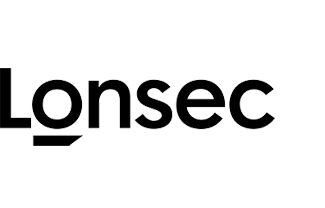There are plenty of fund managers who claim environmental, social and governance (ESG) credentials, but how many of them are actually the real deal?
When clients approach advisers looking to specifically invest in ESG, the problem has been distilling the true-to-label ESG players from those which only tick some of the boxes. Unfortunately, the objectives of investors are not necessarily identical to those of the fund managers.
There have always been ‘pretenders’ in the mix when it comes to ESG managers, but part of the issue is that mum and dad investors view ESG very differently to professional fund managers.
Confusion partly arises due to the different approaches to ESG, and this is where a gap in understanding arises. Often, when institutional fund managers discuss ESG, they are talking about a different thing to what regular investors might have in mind they think about how environmental, social and governance factors are incorporated into a portfolio.
Generally, when funds talk about ESG, they are looking at it through an investment prism – i.e. what will the ESG risk do to the value of a particular company?
However, when the mum and dads are looking at this, they are concerned about the ESG risks as they pertain to them, and what these mean for their community, planet and grandchildren. The bottom line is that the perspective the institutional fund managers and the mum and dad investors have may be quite different, and part of the adviser’s job is to work through this discrepancy and ensure their clients are investing in products that meet their expectations.
In order to do this, advisers and their clients need to understand the underlying investments of individual products and be able to make assessments and comparisons based on objective criteria. This is why Lonsec has been working with advisers to develop a new suite of research that is designed to give advisers and end investors the ability to identify investments that align with an investor’s values.
Under the new regime, all funds covered by Lonsec are issued with a sustainability score, which reflects the underlying investments of individual products and their compatibility with the United Nation’s 17 Sustainable Development Goals (SDGs). The research is provided in partnership with Sustainable Platform, a leading provider of sustainability data for investment managers and institutions.
There is growing awareness among investors of the importance of considering sustainability issues when constructing a portfolio. Advisers are now typically confronted with the question: ‘What am I really invested in?’ It’s essential that advisers are in a position to not only answer this question, but to create a portfolio that is truly aligned to their client’s preferences.
Under Lonsec’s new approach, a Sustainability Report is issued for each fund that undergoes assessment – a two-page document detailing the relative success of the fund in supporting the SDGs, together with any exposure to the 10 controversial industries. The Lonsec Sustainability Score reflects the net impact of these measures, which is peer ranked and results in a score of between one and five bees.
There are certainly a lot of traditional fund managers who have very good ESG processes, and they do understand the risks. However, if they feel the market is compensating investors sufficiently for these risks, they’ll take them. This is because they’re thinking about it in terms of the future value of a firm, but they’re not necessarily thinking about the risk to the future of the planet.
So there are certainly companies and funds that will be assessed very strongly by Lonsec as ESG managers because they do the work, understand the risks, and engage with companies, but that doesn’t mean that their portfolios will align with what investors are looking for.
Hence the need for a new way of assessing sustainability. This new approach is crucial in order to determine what is really going on behind the ‘sustainable’ and ‘ESG’ labels. That is what Lonsec has tried to do – we’ve tried to separate the way ESG is implemented and how fund managers think about it in terms of the investing process from what clients expect and care about.
This means looking beyond the marketing stories that managers are trying to tell. Instead, we need to assess portfolios based not only on what a particular company is, but what it makes (i.e. its products and services) and how are they used.
By mapping these activities to the SDGs and controversial industries, and distilling this into a single score, we hope to give advisers the tools and information they need to make investment decisions that genuinely align with their clients’ values. We also wanted to present this information in a way that allows advisers to clearly demonstrate how their investment selection is helping them contribute to a better world.
ESG is not a redundant process – far from it. If investors understand what ESG products are trying to achieve and how they work, then they may find these products valuable. However, we need to enable advisers to have these conversations with clients and fund managers so that investors can make informed decisions. That’s a goal we hope everyone can support.




